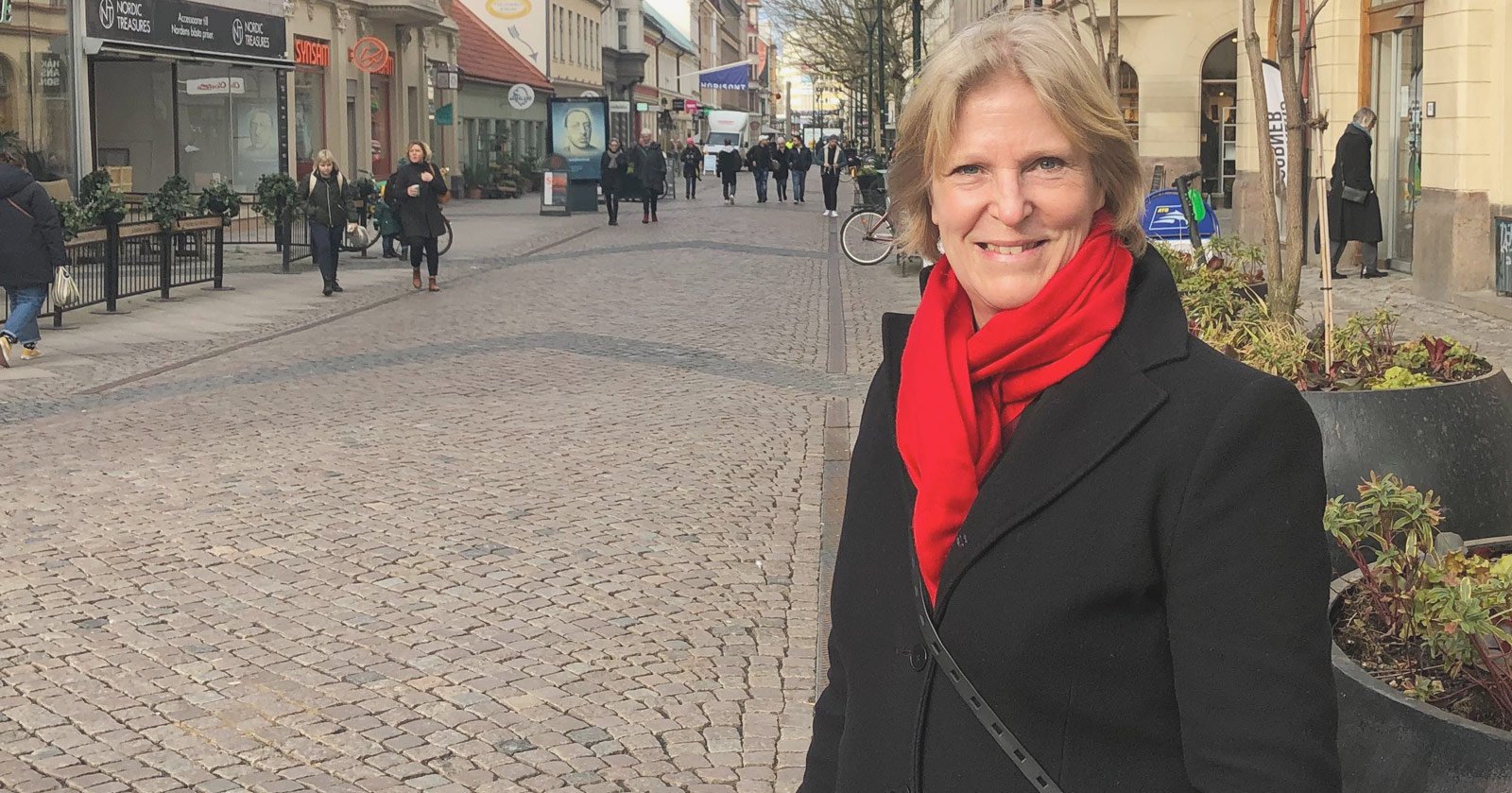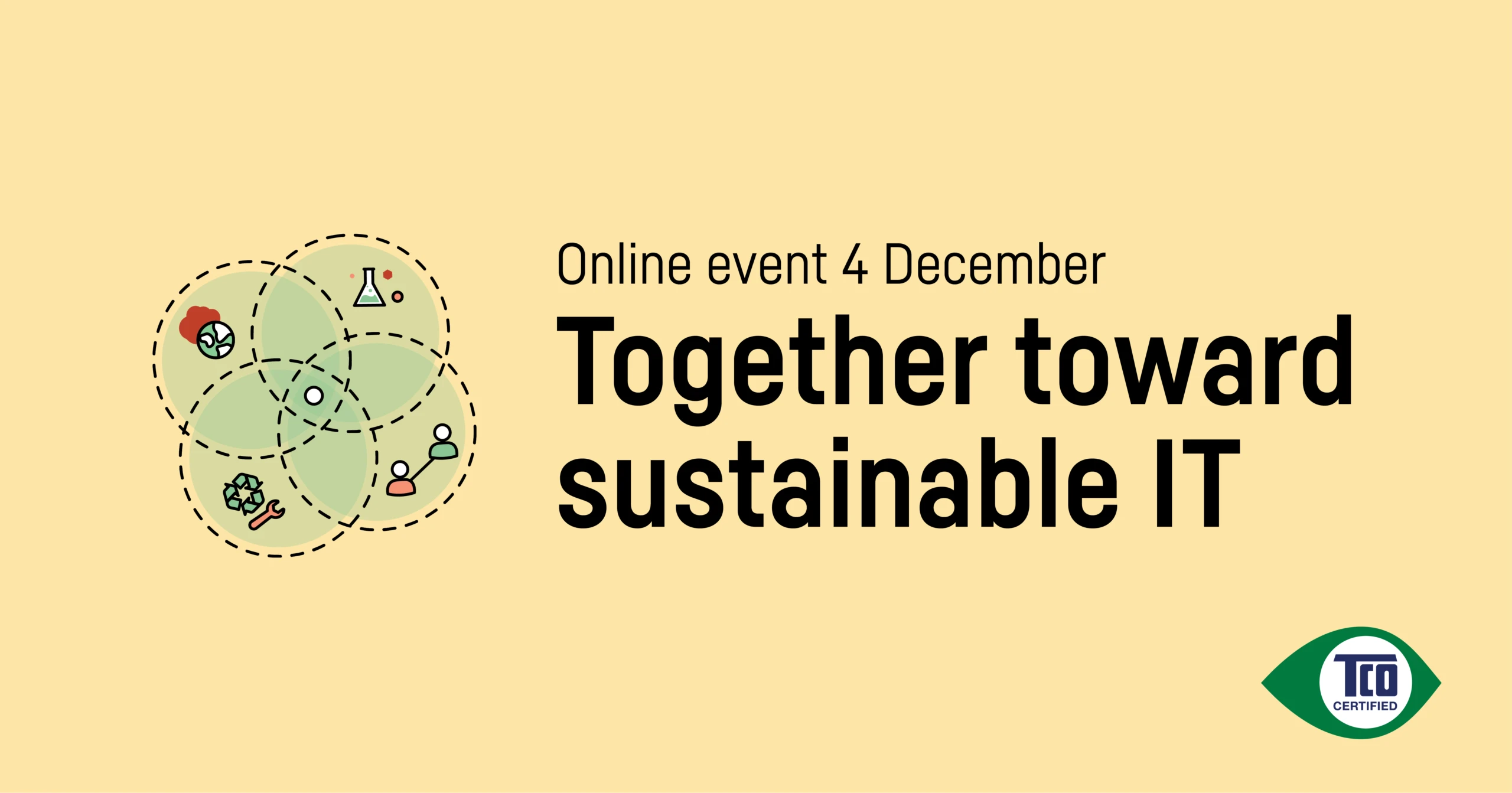Annika Overödder, Purchaser Engagement Manager in the Nordic region, recently visited the southern part of Sweden to discuss circular procurement and how TCO Certified can make responsible choices easier.
Malmö is southern Sweden’s second largest city. What did you do there?
I was invited to a circularity meeting to speak with representatives from six Skåne municipalities: Ystad, Trelleborg, Eslöv, Höör, Helsingborg and Malmö. They have formed a network to discuss how to implement a more circular handling of IT products. The Region of Skåne and the County Administrative Board are partners in the project.
I explained how TCO Certified can be used in procurement, to make more sustainable and circular choices of IT products easier. TCO Certified includes criteria with a circular approach that promotes a longer product life, as well as criteria for social and environmental sustainability throughout the IT product life cycle. The certification also helps organizations contribute to the UN Sustainable Development Goals.
What are the biggest challenges that buyers face when they want to purchase and use IT products in a more circular way?
Many purchasers in the Nordics know that IT products may contain hazardous substances and that raw material extraction has a major impact on the environment. They want to make responsible choices and drive the IT industry in a sustainable direction through the purchases they make. However, they often find it difficult to set criteria that are relevant and challenging. Even more difficult is to verify that the products they buy actually meet the set criteria. This is where TCO Certified can help. The certification includes driving and up-to-date criteria — a new generation is released every three years. Also, independent verifiers check that products and their manufacture are in compliance, throughout the life of the certificate.
You work in the Nordic region — a part of the world where the interest for circular procurement is very strong. Why is that?
All the Nordic countries are small, open and adaptable economies where the educational and income levels are high. Their long tradition of political cooperation is an important reason why the Nordic region has come further in environmental issues than many other regions in the world. Awareness of environmental issues is generally high among the Nordic population and political engagement in these issues started early. The region has succeeded in combining high environmental ambitions with a strong economy. Since the 1980s, these countries have achieved significant reductions in emissions to air and water, while economic growth has been at the same level or better than the OECD average.
I also believe that many citizens, customers, and employees expect private and public organizations to take both environmental and social responsibility and a key to doing that is of course implementing sustainable procurement practices.
Finally, what’s your best advice to organizations that want to get started with circular IT procurement?
It depends on the organization’s needs of course, but in general, I would advise them to start by looking at how the lifespan of their IT products can be extended. It’s the single most effective thing they can do to lower CO2 emissions and save natural resources. Buy IT products that can be repaired and upgraded and make sure to use them for an additional two or three years.
You’re always welcome to reach out to us if you’re planning an event or other activity related to sustainability and IT products. Our purchaser engagement team is ready to support you with tips and advice on sustainable procurement, tailored to your organization’s specific needs. It’s always free of charge!
Find contact details for all members of our purchaser engagement team here.




